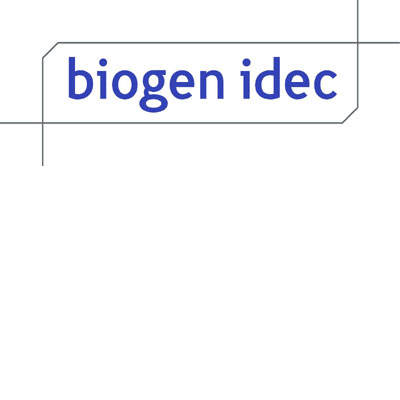Biogen Idec announces positive top-line results from Phase 3 study of peginterferon beta-1a in multiple sclerosis
Posted: 24 January 2013 | | No comments yet
Biogen Idec released the primary efficacy analysis and safety data from its Phase 3 pivotal clinical trial…


Today Biogen Idec (NASDAQ: BIIB) released the primary efficacy analysis and safety data from its Phase 3 pivotal clinical trial, ADVANCE. Results support peginterferon beta-1a as a potential treatment dosed every two weeks or every four weeks for relapsing-remitting multiple sclerosis (RRMS). Peginterferon beta-1a is a new molecular entity in which interferon beta-1a is pegylated to extend its half-life and prolong its exposure in the body, enabling study of a less frequent dosing schedule.
The primary endpoint of ADVANCE, annualized relapse rate (ARR) at one year, was met for both the two-week and four-week dose regimens. Results showed that peginterferon beta-1a also met the secondary endpoints of risk of 12-week confirmed disability progression, proportion of patients who relapsed and magnetic resonance imaging (MRI) assessments for both dose regimens. Adverse events (AEs), serious adverse events (SAEs) and discontinuations due to AEs were similar across both dose groups. Overall with both dose regimens studied, the risk-benefit profile of peginterferon beta-1a appears to be favorable.
“If approved, peginterferon beta-1a will represent an innovation that offers patients a less frequent dosing schedule of no more than 26 doses annually, as well as a significant reduction in relapses and disability progression,” said Gilmore O’Neill, vice president, Global Neurology Late Stage Clinical Development at Biogen Idec. “Interferons are an important and widely used option for many patients. As a leader in MS, Biogen Idec has the deepest MS pipeline in the industry and we remain steadfast in our commitment to study compounds that target a broad range of patients’ needs.”
The ADVANCE study included more than 1,500 patients with RRMS and was designed to evaluate the efficacy, safety and tolerability of peginterferon beta-1a compared to placebo at one year. Results showed that when administered via subcutaneous (SC) injection, peginterferon beta-1a 125 mcg demonstrated a significant reduction in ARR at one year. Compared to placebo, ARR reduction with two-week dosing was 35.6 percent (p<0.001) and with four-week dosing was 27.5 percent (p<0.02).
Results showed that peginterferon beta-1a also met all secondary endpoints compared to placebo for both dose regimens.
Peginterferon beta-1a reduced the risk of 12-week confirmed disability progression as measured by the Expanded Disability Status Scale (EDSS) by 38 percent in both dosing arms (p<0.04).
Peginterferon beta-1a reduced the proportion of patients who relapsed by 39 percent in the once every two-week dosing arm (p<0.001) and by 26 percent in the once every four-week dosing arm (p<0.03).
Peginterferon beta-1a reduced the number of new or newly enlarging T2-hyperintense lesions on brain MRI scans by 67 percent in the once every two-week dosing arm (p<0.001) and by 28 percent in the once every four-week dosing arm (p<0.001).
In ADVANCE, both dosing regimens showed favorable safety and tolerability profiles. The overall incidence of SAEs and AEs was similar among the peginterferon beta-1a and placebo groups. The most common SAE was infections, which was balanced across all treatment groups (≤1 percent per group).
The most commonly reported AEs with peginterferon beta-1a treatment were redness at the injection site and influenza-like illness.
ADVANCE data will be presented at the American Academy of Neurology Annual Meeting in March of this year.
Based on top-line data from the ADVANCE clinical trial, regulatory submissions in the United States and European Union are planned for peginterferon beta-1a in 2013.
After completing two years in the ADVANCE study, patients have the option of enrolling in an open-label extension study called ATTAIN and will be followed for up to four years.
About ADVANCE
The two-year Phase 3 ADVANCE clinical trial is a global, multi-center, randomized, double-blind, parallel-group, placebo-controlled study designed to evaluate the efficacy and safety of peginterferon beta-1a in 1,516 randomized patients with RRMS.
The study investigates two dose regimens of peginterferon beta-1a, 125 mcg administered SC every two weeks or every four weeks compared to placebo. The analysis for all primary and secondary efficacy endpoints occurs at one year. After the first year, patients on placebo are re-randomized to one of the peginterferon beta-1a arms for the duration of the second year of the study.




